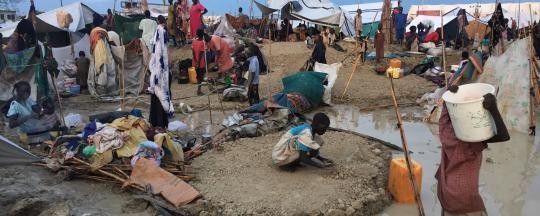The World Food Programme and UNICEF have reached Wau Shilluk on the west bank of the Nile River for the first time since March to distribute food and medicine.
The village of more than 27,000 people had been cut off due to insecurity, fighting, and later a government blockade on river traffic. The groups sent a “mobile emergency relief team” to Wau Shilluk, indicating that consistent access may still be a problem.
It is unclear if the groups were able to access Wau Shilluk by river or by air.
According to a joint press release, WFP provided food assistance to more than 20,000 people in the village while UNICEF screened more than 3,000 children under the age of 5 for malnutrition and vaccinated more than 8,000 children under the age of 15 against measles. More than 7800 were vaccinated against polio while around 400 pregnant women were vaccinated against tetanus.
Restrictions on access and concerns for humanitarian staff safety have limited delivery of aid to many parts of Upper Nile state.
“With little or no services available, children are going without nourishing food and healthcare in these villages,” said Jonathan Veitch, UNICEF Representative in South Sudan. “It is a desperate situation.”
Fear of violence along with the absence of food in places like Wau Shilluk have triggered a mass influx into the UN base in Malakal, the aid groups said. This month nearly 11,000 people have arrived. Three-quarters of the new arrivals are children. The site’s population is likely to hit 50,000 within days, but was designed to accommodate just 18,000 people, the groups added.
“At this rate of expansion, the situation inside Malakal POC will get out of control, and we won’t be able to provide sufficient services and resources to children who have been through hell to get to a place of safety,” said Veitch.




